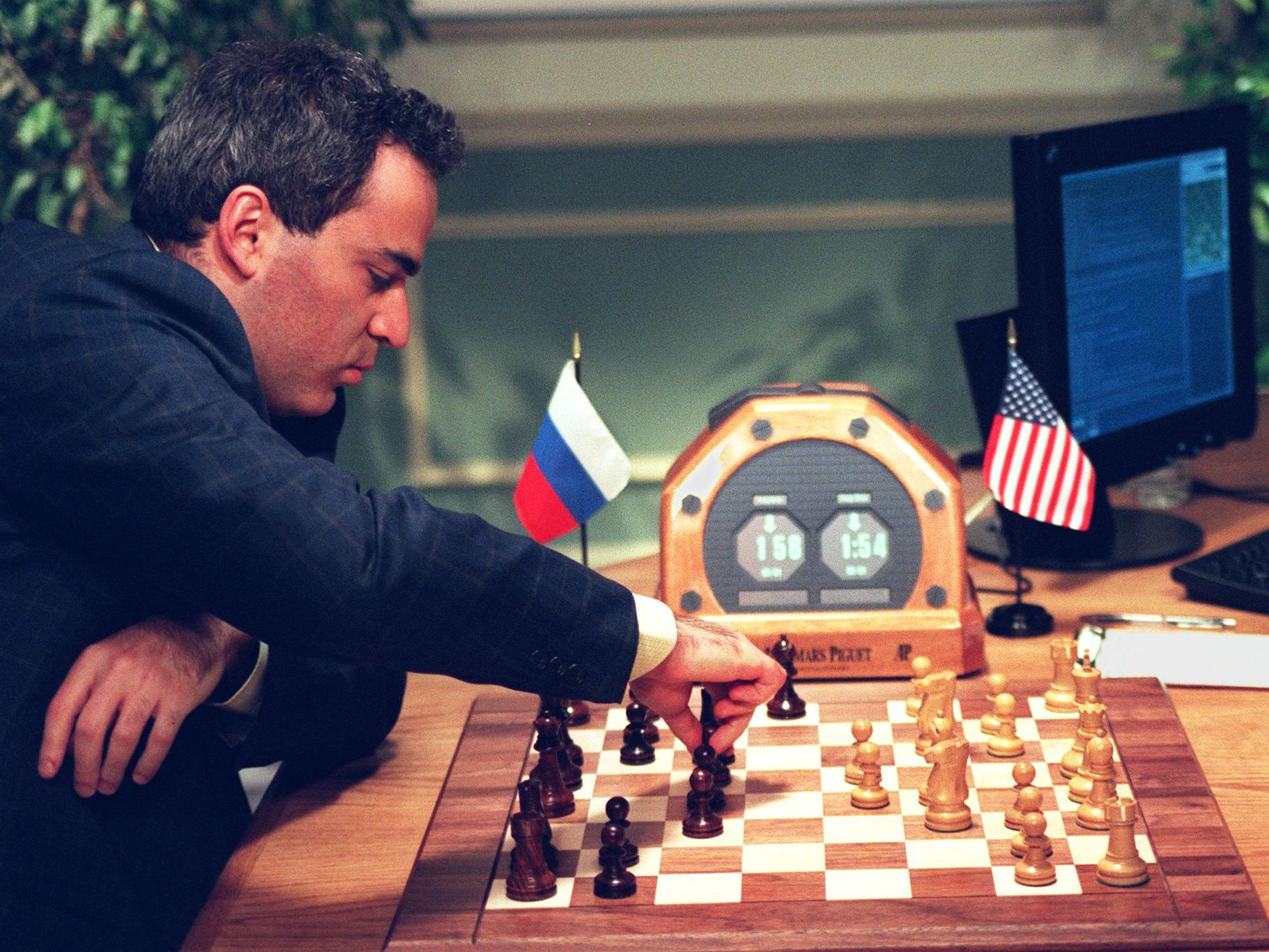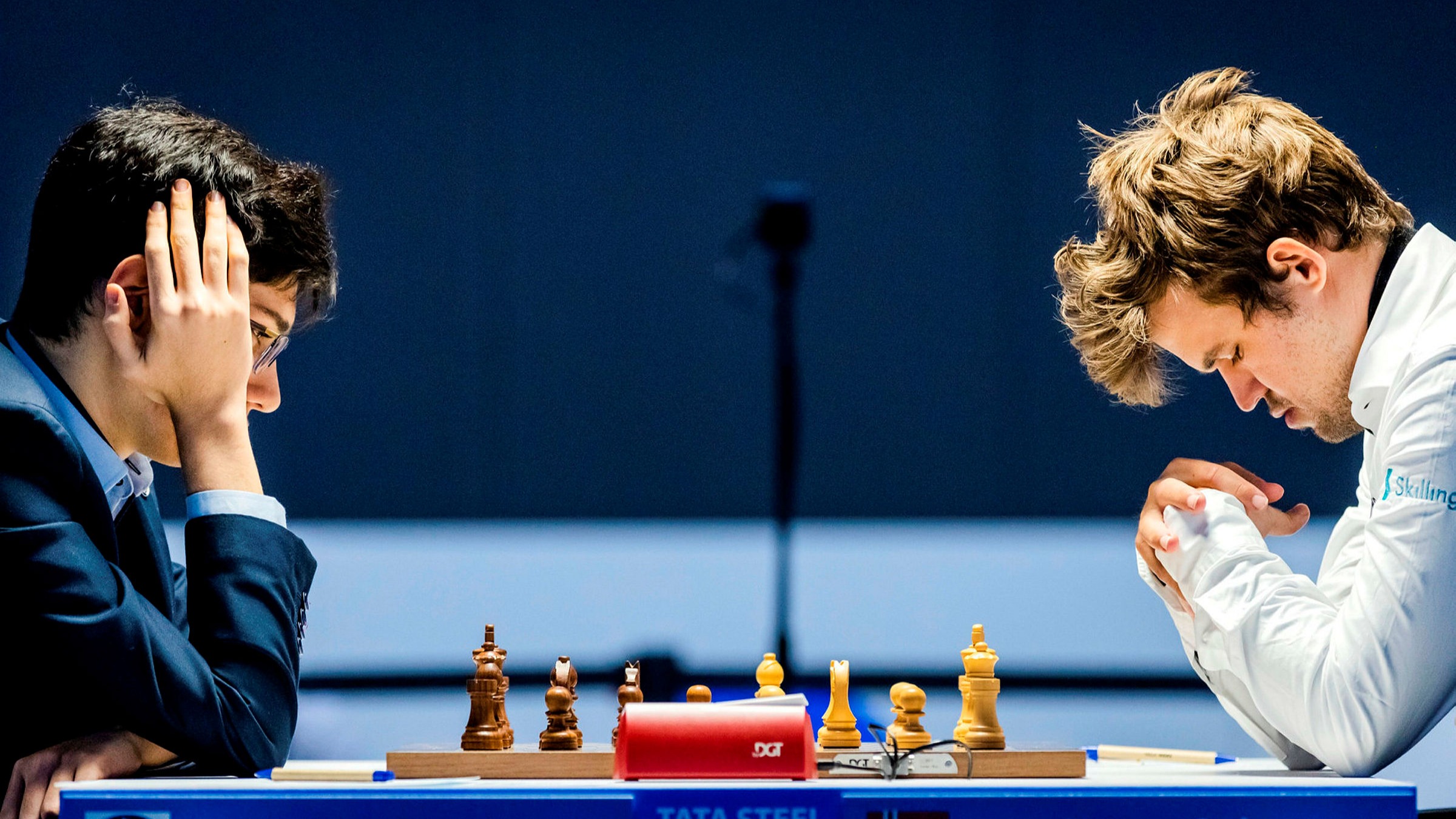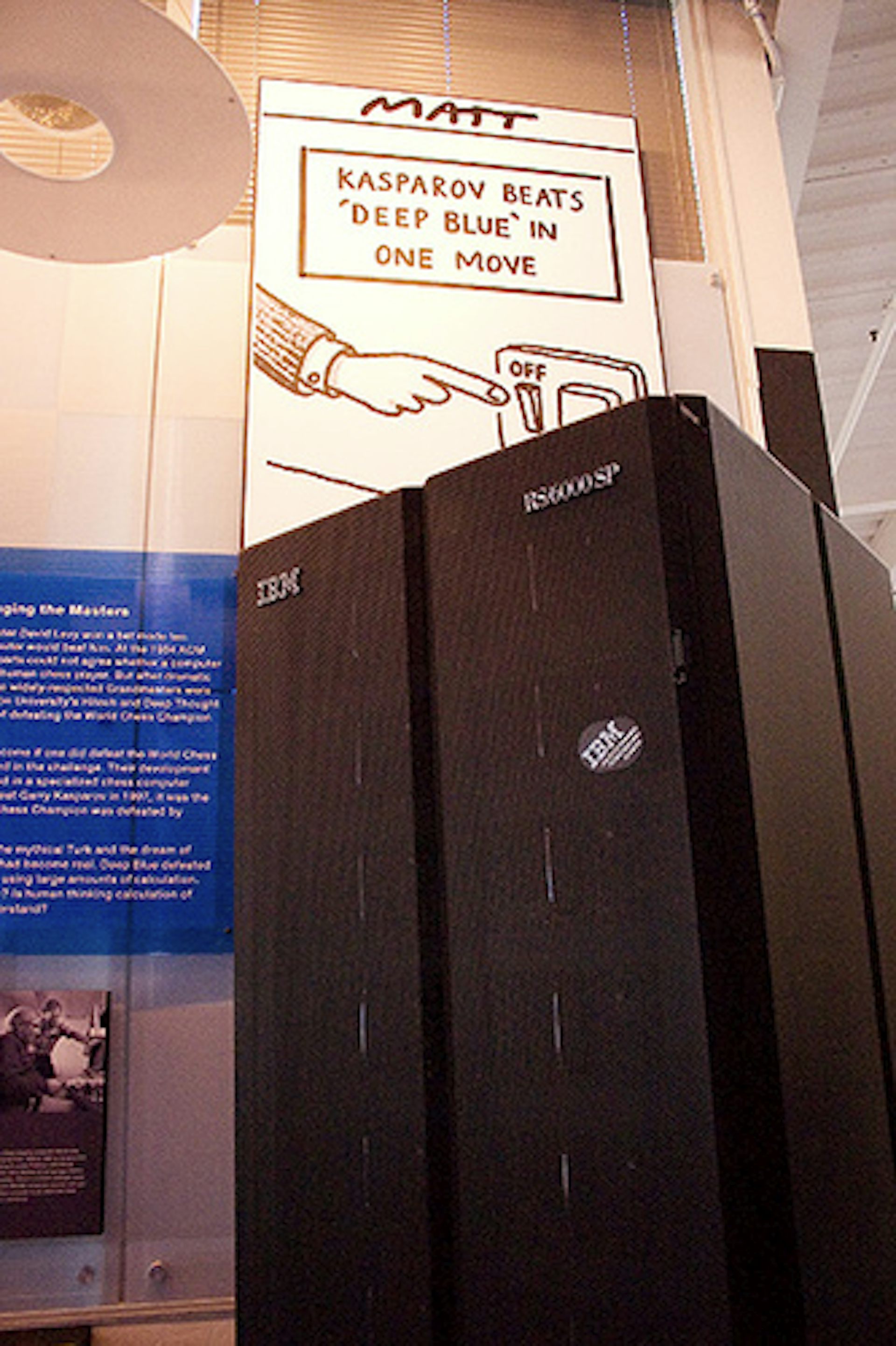
Kasparov had already played Deep Thought seven years earlier and won comfortably. In 1996, with Hsu the one to represent his project, Deep Blue faced off against Kasparov in a heavyweight clash in New York. Indeed, the original system Hsu created was called ‘Deep Thought’ named after Adams’ creation. Thanks to Hsu, IBM, and Deep Blue, Kasparov would also later have the dubious honour of becoming the first world chess champion to be defeated by a supercomputer in a competitive match.ĭeep Blue was a huge Kubrickian monolithic machine which had taken inspiration from Douglas Adams’ fictional computer in The Hitchhiker’s Guide to the Galaxy which spent 7.5million years calculating ‘the Answer to The Ultimate Question of Life, the Universe, and Everything’ (Spoiler: the answer is 42). He was, quite simply, the genius chess-playing paragon, the best the human race had to offer.


Throughout his entire professional career, Kasparov was numero uno for 225 out of 228 months.

Kasparov started playing chess aged six, by 13 he was Soviet champion, aged 16 he won his first international tournament, then in 1985, at 22 years old, became the youngest world chess champion by defeating Anatoly Karpov. The Russian grandmaster was born in the capital of what was then the Azerbaijan Soviet Socialist Republic, in 1963. That player was Garry Kasparov, the “Beast of Baku'', who was world champion from 1985 to 2000. Watson Research Center, outlined the mission’s aim, “We were trying to prove that it was possible to build a chess machine that could beat the best human player in the world.”

In conversation with the BBC, Murray Campbell of the IBM Thomas J. Hsu joined IBM in 1989 and with a core team of like-minded engineers and scientists, eventually created ‘Deep Blue’, the technology that would later shock the world and reign supreme in chess. Taiwanese-American computer scientist Feng-hsiung Hsu - nicknamed ‘Crazy Bird’ - began the foundations of what would ultimately be the first computer chess champion whilst he was in college, studying at Carnegie Mellon University in Pittsburgh, Pennsylvania. There are more possible variations of chess games than there are atoms in the observable universe and the complexity of the battling board game has inspired some of the greatest minds, including José Raúl Capablanca, Bobby Fischer and Alexander Alekhine.Īnd in May 1997, artificial intelligence joined those illustrious ranks.


 0 kommentar(er)
0 kommentar(er)
